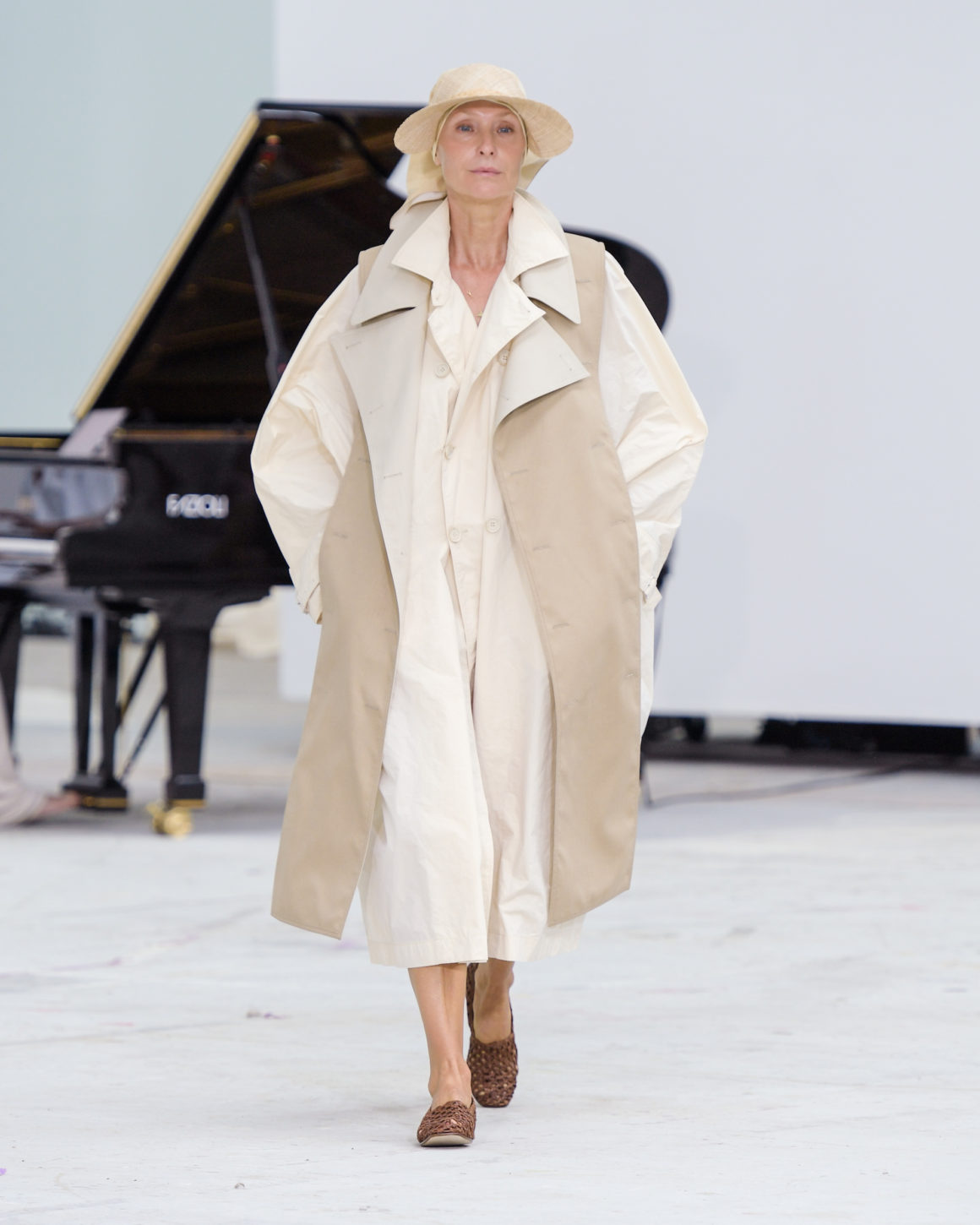Industry eyes were on Copenhagen last week as a slimmed-down roster of Scandinavian brands experimented with hybrid presentations of their SS21 collections. The mix of socially distanced physical shows, digital fashion films, panel discussions, and designer Q&A’s attempted to connect Danish brands with the industry, most of whom tuned in online rather than attend in person. There was a noticeably local, low key feel on the ground this season, while brands found new ways of communicating their brand message.
In recent years, Copenhagen Fashion Week has become known for its forward-thinking and innovative spirit — usually pertaining to their emphasis on sustainability — and it’s an attitude that served brands well this season. For some, the pandemic has been an opportunity to reassess everything from their materials and production to their involvement in the industry, while other brands barely acknowledged the masked elephant in the room.
The first show of the season, a short film by Swedish brand Whyred that was more music video than standard collection show, was followed by a Q&A with designer Jessy Huevelink, who explained than the pandemic has been a catalyst for the brand to step off the industry-dictated schedule and release collections at a more manageable pace for the business. These short Q&A’s gave brands the opportunity to offer an insight into the past few months and elaborate on their experience — a peek behind the curtain at the human impact of COVID on the industry.
Slow fashion brand Designers Remix created a collection using the brand’s own garments returned by customers, as well as deadstock furniture fabric, embracing the limitations to develop their already impressive sustainability credentials even more. An apt reflection on dressing in a post-corporate world, Designers Remix deconstructed and repurposed men’s suits into one-of-a-kind womenswear pieces.

Other brands, save for the usual precautions — mask, hand sanitizer, and socially distanced seating — appeared unaffected by the pandemic in their final product. Mark Kenly Domino Tan’s SS21 collection was shown at the Fabrikken for Kunst og Design, in a sparse white warehouse on the edge of the city. The collection showed no signs of being compromised — the accompanying show notes gave nothing away. Elegant and pared-back, Tan’s SS21 collection was a study of contrasts: the fluidity of silk paired with crisp tailored linen gave complexity and depth to what was an exclusively white, tan, and cream-toned offering.
While Mark Kenly Domino Tan transported us to a pandemic-free world for the duration of his show, its impact was impossible to ignore elsewhere. Speaking to brands at the Revolver Trade show, the absence of international buyers was a disappointing reminder that while Denmark has been able to relax lockdown restrictions to the point where mask-wearers are few and far between, the rest of the world isn’t there yet.
Was Copenhagen Fashion Week as impactful as bygone fashion weeks? Of course not. But faced with the near-impossible task of replicating the atmosphere and energy of a physical fashion show in a digital format, it was a noble attempt. Brands persevered through uncertainty and offered creative and unexpected alternatives to what we expect from fashion week. They’re adapting to the new normal, questioning the status-quo and innovating across all areas of their business, offering a glimpse into exciting possibilities for the future for the industry.
